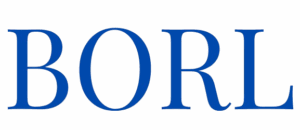Singapore’s Ministry of Education (MOE) has officially rolled out significant changes to the PSLE (Primary School Leaving Examination) scoring system starting in 2025. These reforms are designed to shift focus from competition to personal mastery and well-rounded development. Rather than ranking students against one another, the new system assesses them against consistent academic standards.

Table of Contents
Summary Table: MOE Confirms New PSLE Scoring Changes for 2025

Detail |
Information |
|---|---|
New Scoring System |
Achievement Levels (ALs) replace T-score |
Total Score Range |
4 (best) to 32 (lowest) |
Subject Grading |
8 AL bands per subject |
Admission Basis |
AL score + ranked school choices |
Replaced System |
T-score (relative to peer performance) |
New Focus Areas |
Subject-Based Banding, CCAs, holistic education |
Official Site |
Overview of the 2025 PSLE Scoring Changes
The old T-score system has long been criticized for encouraging excessive competition. Even minor differences in marks could drastically alter school postings. Starting in 2025, students will now receive scores based on Achievement Levels (ALs), which are pre-defined bands from AL1 (highest) to AL8 (lowest). This promotes mastery over comparison.
Old vs. New Scoring System:
Component |
Previous System |
New System (2025 Onward) |
Scoring Basis |
T-score (relative) |
Achievement Levels (standard-based) |
Score Range |
0–300+ |
4 (best) to 32 (lowest) |
Grading Scale |
Point-by-point ranking |
8 AL bands per subject |
Secondary Admission |
T-score priority |
AL score + ranked school choices |
Each of the four subjects—English, Mother Tongue, Mathematics, and Science—will be graded separately on the AL scale, and their total sum will determine the student’s PSLE score.
Key MOE PSLE Updates Parents Must Pay Attention To
In addition to the revised scoring system, MOE has introduced several structural updates aimed at enhancing the learning journey:
1. Subject-Based Banding (SBB)
This offers students the flexibility to study subjects at different difficulty levels based on their strengths. It recognizes that students can excel in specific areas even if they struggle in others.
2. Secondary School Admissions
Admissions will now consider both a student’s PSLE AL score and their ranked school choices, placing less pressure on achieving a perfect score. Students are encouraged to make thoughtful, well-informed decisions instead of fixating on cut-off points.
3. Holistic Education Approach
MOE emphasizes the value of non-academic achievements. Co-curricular activities (CCAs), leadership roles, and community involvement are gaining importance in secondary school placements and overall development.
Why This Reform Was Needed
Years of feedback from educators, parents, and mental health advocates revealed deep concerns over the stress caused by the T-score system. Children were under pressure to outperform peers rather than focus on their own growth.
The Achievement Levels aim to:
- Shift emphasis from relative to individual performance
- Encourage learning at one’s own pace
- Decrease academic anxiety among primary school students
- Promote broader skills like resilience, adaptability, and collaboration
This change better aligns with Singapore’s long-term education vision under the “Learn for Life” framework.
How Parents Can Support Their Children
Adjusting to a new scoring system requires thoughtful guidance and emotional support. Here’s how parents can prepare:
1. Understand the AL Grading Structure
Familiarize yourself with the scoring bands and how they apply to your child’s subjects. Knowing what each level signifies helps set realistic goals.
2. Explore a Variety of Schools
Talk with your child about their interests and explore a diverse range of secondary schools that align with their learning style, values, and CCA options.
3. Encourage Skills Development
Support your child in participating in enrichment classes, project-based learning, and extracurricular activities. These build character and competencies that go beyond textbooks.
4. Manage Stress Proactively
Be aware of signs of anxiety. Foster open communication, set balanced routines, and ensure your child knows their worth is not tied to a number.
What This Means for Singapore’s Education Landscape
This shift is more than an exam policy adjustment—it reflects a cultural rethinking of how success is measured in education. The system now rewards consistency, effort, and depth of learning.
Long-Term Impacts May Include:
- Reduced academic pressure in early childhood
- Increased innovation in teaching methods
- A more inclusive environment for different types of learners
- Better preparedness for future challenges that require soft skills
By reinforcing values beyond academics, Singapore is taking a step toward cultivating a generation equipped not only for tests but for life.
FAQs About PSLE Scoring
Q: What are the major PSLE scoring changes in 2025?
A: The T-score has been replaced by Achievement Levels (ALs), with scores now ranging from 4 (best) to 32 (lowest) based on individual performance, not relative ranking.
Q: How does this affect secondary school admissions?
A: Admissions now consider both AL scores and ranked school choices, creating a less pressurized and more holistic posting process.
Q: What are some important MOE PSLE updates parents should know?
A: Subject-based banding, a stronger focus on non-academic achievements, and more flexible school placement policies are key updates.
Q: How is the new system different from the old one?
A: The old system emphasized relative ranking through T-scores, while the new one focuses on achieving set learning benchmarks through ALs.
Q: What can parents do to help their children succeed?
A: Understand the AL system, support a well-rounded development approach, help your child make thoughtful school choices, and manage their mental well-being.
For official resources and the latest announcements, visit the Ministry of Education’s site: www.moe.gov.sg
Click Here To Know More



